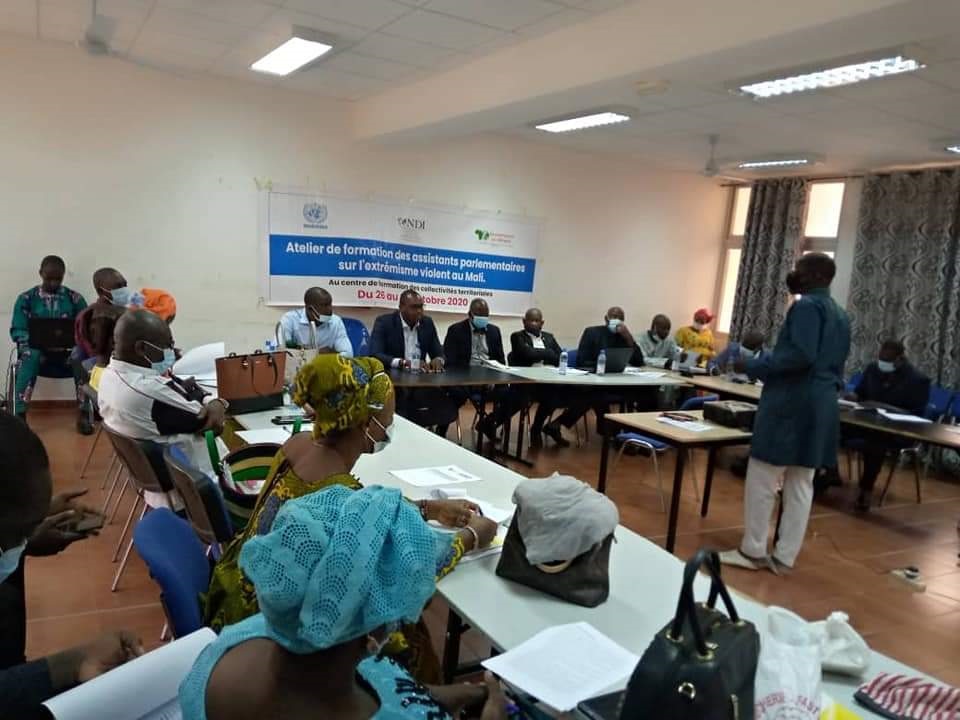In October, 2020, the Alliance pour Refonder la Gouvernance en Afrique (ARGA), a partner in the PREVEX-project, held a training workshop for parliamentary assistants on the prevention of violent extremism in Mali.
The background for this workshop is the conflict that Mali has struggled with since 2012. The conflict has been characterised by a multitude of violent extremist groups that have fought for and exerted influence over parts of Mali. Al-Qaeda and Islamic State-affiliated groups have demonstrated an enormous capacity for causing harm, and the insurgencies have since spread to neighbouring Sahelian countries, Niger and Burkina Faso.
The insurgency started in the north of Mali and was initially beaten back by a French military intervention in 2013. However, since then, Malian security forces, the French military (Operation Barkhane) and the UN MINUSMA-force have been unable to halt a worrying progression by the violent extremist groups into central Mali and towards the Southwest.
The government of Mali has responded with a multitude of legislative, institutional, administrative, operational and judicial measures to curb violent extremism and related crimes. ARGA’s training workshop addressed the situation in Mali and the government’s national strategy to fight violent extremism.
The workshop lasted six days (20-26 October) and brought together about twenty parliamentary assistants and a few members of the Parliament. The workshop was organised by ARGA within the framework of the PREVEX-project, the Disarmament, Demobilisation and Reintegration (DDR) section of the UN mission in Mali (MINUSMA) and the National Democratic Institute (NDI).
This workshop enabled the members of the group of parliamentary assistants to identify the areas that need strengthening in the National Strategy to fight Violent Extremism.

Working questions and training materials
ARGA and experts associated with the training developed several working questions and training materials for the participants. Some examples of questions addressed:
1. What priority areas should be addressed in the national strategy to prevent or fight violent extremism? Justify the choice of areas in terms of the security stakes?
2. What are the courses of action to be initiated in each area for the development and implementation of the national strategy?
3. What contributions can the National Assembly, through parliamentary assistants, make to the national strategy to combat violent extremism?
Dr Moussa Sissoko presented an overview of the National Policy to Combat Violent Extremism and Terrorism (PNLEVT) in Mali. He is an expert at the Permanent Secretariat of the National Policy of Prevention and Fight against Violent Extremism and Terrorism.
The PNLEVT is based on five pillars to ensure the fight against violent extremism and terrorism, in particular the four pillars of the international counter-terrorism strategy, namely – prevention, protection, pursuit and response – to which is added a fifth pillar which is social cohesion in accordance with the Malian context.
The trainers prepared and shared a document defining key terms – extremism, radicalization, jihad, fatwa, terrorism – and presenting a map of the presence of jihadist groups in Africa. The trainers also shared a guide on adapting religious preaching and sermons to the National Policy for Preventing and Combating Violent Extremism and Terrorism that was presented and discussed.




